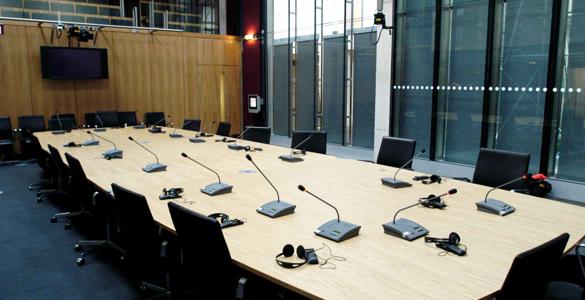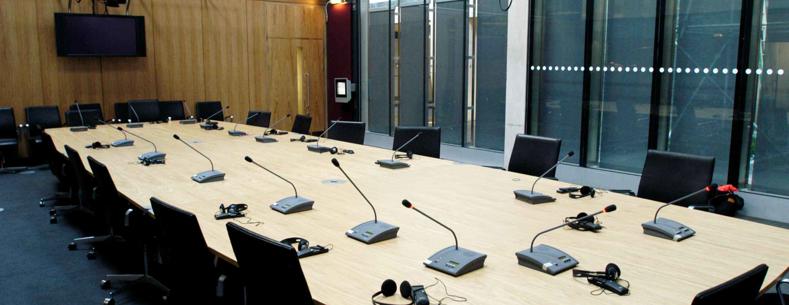The Legislation (Procedure, Publication and Repeals) (Wales) Bill aims to improve the accessibility of Welsh law by formalising procedures for making and publishing legislation, and by repealing outdated provisions.
Stage 2 proceedings for the Bill were held in the Senedd’s Legislation, Justice and Constitution (LJC) Committee on 31 March 2025. Some minor amendments were made to the Bill, and the Welsh Government made several other commitments. These are set out in this article.
For more information on the Bill, see our resources page.
What changes were agreed?
Recording footpaths
The Welsh Government tabled an amendment to the Bill to repeal provisions in the Countryside and Rights of Way Act 2000.
The provisions currently enable the Welsh Government to prescribe a cut-off date (1 January 2026) for the recording of footpaths and bridleways created before 1949. Public rights of way over such footpaths and bridleways which have not been recorded by the cut-off date no longer apply. Repeal of these provisions will mean that the Welsh Government cannot use these provisions to prescribe a cut-off date.
This repeal was proposed in a draft Bill, published by the Welsh Government in 2022. The Open Spaces Society expressed support for including the provisions for repeal in this Bill.
Minor amendments
The Welsh Government tabled several amendments relating to consistency and accuracy of drafting. All of these amendments were agreed.
For example, references to the “Clerk of Senedd Cymru” were amended to “Clerk of the Senedd” in line with the term used in the Government of Wales Act 2006, as recommended by the LJC Committee.
What else was discussed?
While no other amendments were agreed, Members discussed several other potential changes.
Scrutinising statutory instruments
Several amendments tabled by Adam Price MS related to the scrutiny of statutory instruments (SIs).
Statutory instruments are the most common form of secondary legislation (also known as subordinate or delegated legislation).
Secondary legislation is law made by Ministers (or other bodies) under powers given to them by primary legislation (usually an Act). While primary legislation (such as Senedd Acts) provides frameworks for laws, much of the detail is often subsequently added through secondary legislation.
Most secondary legislation is scrutinised by the Senedd.
Amendable statutory instruments
Adam Price MS argued that increases in the volume and scope of secondary legislation has led to a vacuum in terms of democratic accountability. This is because secondary legislation, including SIs, is subject to less scrutiny than primary legislation.
He therefore tabled an amendment which would have allowed the Senedd to approve an SI conditionally, subject to specified amendments. The Welsh Government would then be able to amend or withdraw the instrument.
The Counsel General and Minister for Delivery, Julie James MS, acknowledged a “developing strength of feeling” that traditional procedures for scrutinising subordinate legislation may not be adequate.
The Counsel General noted comments by the Hansard Society’s Dr Ruth Fox during scrutiny of the Bill relating to whether legislative change is necessary to reform scrutiny of subordinate legislation, or whether it could be done through amending standing orders. She added that Dr Fox “pointed to concerns” around whether parliaments being able to amend SIs could undermine the fact that the parliament has previously delegated the power to make the instrument to the executive.
The Counsel General expressed interest in the idea of amendable SIs, but added that it “needs a fuller and wider debate, and probably a committee inquiry where a range of views can be taken”.
Adam Price MS also tabled an amendment intended to give the Senedd the ability to annul specific sections of an SI, rather than having to reject the entire instrument.
The Counsel General said that this was a “very interesting proposition”, but required fuller consideration. She added that she would ask her officials to research the experience of other parliaments with similar procedures, and agreed to share this work with the Committee.
Corrections to statutory instruments
Adam Price MS tabled an amendment relating to the correction of errors in SIs. His amendment aimed to enable “administrative correction” of all Welsh Statutory Instruments, largely in line with proposals in a Private Members’ Bill in the UK Parliament - the Statutory Instruments (Amendment) Bill.
The Counsel General said that her officials have “started a dialogue” with relevant UK officials about the issue of “ensuring the statute book is clear and certain in its effect”, and committed to bring the amendment to their attention.
She also committed to write to the Committee with more information on the Welsh Government’s upcoming “omnibus amending” instrument.
Adam Price MS also tabled an amendment which would have required Welsh Ministers to prepare and publish reports on corrections to Welsh Statutory Instruments every 12 months.
The Counsel General proposed working with the Member to develop a “suitable” amendment for Stage 3 proceedings that would “support action being taken on errors and ambiguities in Welsh law as well as provide for regular reporting to the Senedd”. She added that this would likely cover primary and secondary legislation. Adam Price MS subsequently tabled an amendment ahead of Stage 3 proceedings which would require the Welsh Government to set out how it intends to resolve any ambiguities, and correct any errors, in Welsh law at the start of each Senedd term.
The King’s Printer for Wales
All legislation that is made by the UK Parliament and devolved legislatures is formally published. This is done by the Keeper of Public Records in their capacity as the King’s Printer of Acts of Parliament, the Government Printer for Northern Ireland, and the King’s Printer for Scotland.
The Bill will confer a title of ‘King’s Printer for Wales’ upon the King’s Printer for Acts of Parliament when acting in a relevant capacity.
Adam Price MS tabled an amendment which would have established a separate office of the King’s Printer for Wales, as exists for Scotland and Northern Ireland.
He noted that a Senedd committee and the Welsh Government have previously discussed establishing a printer for Wales; in 2015, the Constitutional and Legislative Affairs Committee recommended that “the Welsh Government fully explores the practicalities and feasibility of the establishment of a Queen’s Printer for Wales”, while in 2016, a Welsh Government draft bill included provisions establishing a separate office.
The Counsel General said that there would be cost implications to creating a separate office. She added that the Welsh Government would seek further information on these potential costs.
Post-legislative review
The final proposed amendments, which were tabled by Paul Davies MS and Adam Price MS, related to requirements to review the operation of the Act. .
Resisting these, the Counsel General committed to working with Members to bring forward a new amendment at Stage 3. Paul Davies MS subsequently tabled a new amendment ahead of Stage 3 proceedings.
What happens next?
Stage 3 proceedings will take place in Plenary on 13 May 2025. This will provide Members with another opportunity to amend the Bill. You will be able to watch proceedings live on Senedd.tv and a transcript will be available around 24 hours later.
Article by Adam Cooke, Senedd Research, Welsh Parliament






